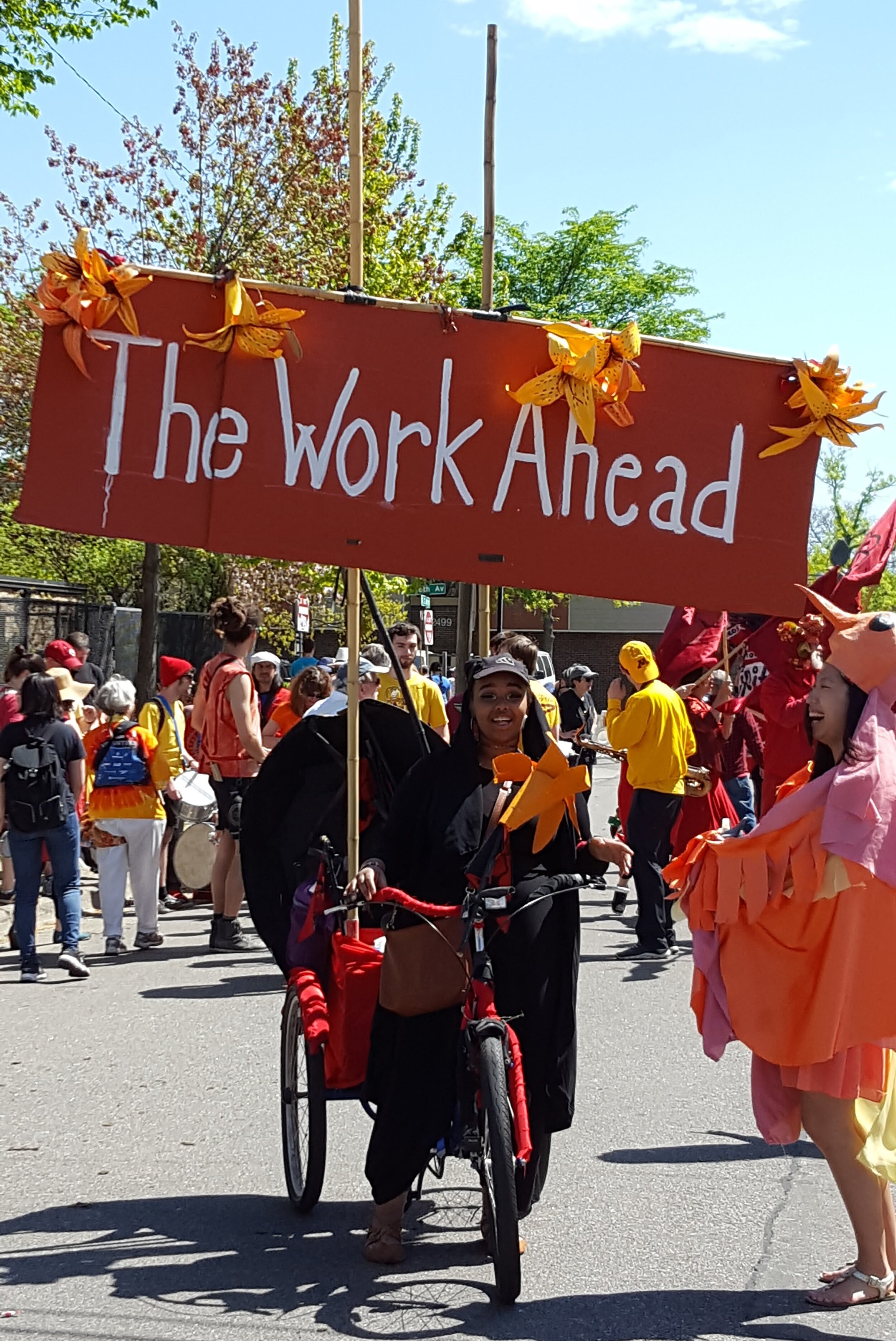WHAT ARE YOU PRACTICING?
Photo by Liz Wuerffel
Guest Writer: Elizabeth Jarrett Andrew*
Slowly everything else is becoming practice, too. Learning to use the pronoun “them” for my nonbinary niece, taking a breath before I respond in a conversation, shutting down my computer by 7 p.m., setting aside distractions so I can listen when my daughter is talking, observing my reactivity to a disagreeable political view, remembering to see the human behind it. Exercising hope when I feel despair. Noticing racism, in systems and in me.
Once I turned ten, I walked from school every Wednesday afternoon down the hill, through Tarrytown, NY, to the United Methodist Church for my piano lesson. I let myself into the high-ceilinged sanctuary, empty of everything except music. My teacher, Clarence Jones, practiced organ for two or three hours prior to my lesson; I’d dump my backpack in the front pew, sit down, and wait, awash in the blast and trumpet of pipes.
I learned how to practice during those moments. Mr. Jones would hit a knotty sequence in a Bach fugue, suddenly interrupting the magic he’d created to untangle it, slowly at first, isolated from other parts, working out the fingering, then gradually faster, in combination, repeating the phrase until it was drilled into my bones. Despite being tucked away in the corner, behind the organ console, Mr. Jones knew I was there. I could sense him teaching even though my lesson hadn’t begun: His fearless plunge into a complex piece, his willingness to fill the entire sanctuary with a glaring stumble, his immense patience with repetition. On Sunday mornings his performance swept me away. On Wednesday afternoons I listened to hard work.
When I consider what of my schooling has had enduring value, learning how to practice rises to the top. On the surface practice meant doing scales, memorizing, repeating, all the drudgery necessary to learn a piece. Underneath, though, practice taught me that you always begin by playing poorly. You make ugly sounds before you’ll ever make beautiful ones. Skills are learned, even when you’re as talented as Mr. Jones was. Gaining those skills takes patience, humility, determination. You can’t think your way through music; you need your body to know it. There’s never an end point at which you no longer have to practice. Practice is joyful. It’s both a means to an end as well as an end in itself.
For most of my life, the only practice I named as such were the hours I spent at the piano. Gradually writing in my journal and, later, the work of composing poems, essays, and books, emerged in my consciousness as a practice. Then, about eight years ago, the floundering meditation I’d attempted for decades coalesced into a form of Christian contemplative prayer, with its rich tradition of practice. I slipped into those teachings the same way Mr. Jones slipped into his soft, worn organ shoes. Every morning it’s the same: Thirty minutes on the cushion, consenting to divine presence and movement within. I’m terrible at it, I hate it, I love it, I give myself to it regardless.
Slowly everything else is becoming practice, too. Learning to use the pronoun “them” for my nonbinary niece, taking a breath before I respond in a conversation, shutting down my computer by 7 p.m., setting aside distractions so I can listen when my daughter is talking, observing my reactivity to a disagreeable political view, remembering to see the human behind it. Exercising hope when I feel despair. Noticing racism, in systems and in me. Mr. Jones was a Black man. Should I have mentioned that up front, or not? Ought I mention it at all? I’m plunging in, regardless, making mistakes just like he did. I trust the value of practice.
These days I only practice piano; I never perform. The music hides in the piano housing, or in my being, or in Mr. Jones’ spirit, resident in his scrawled advice on my yellowing piano books and in my memory; it seeps out haltingly, in snatches of stumble and grace. I practice practicing, because doing so is generous, joyful, worthy, perhaps life's whole purpose, and a testimony to a man I loved.
*I met Elizabeth 20 years ago when she and her partner came to my farm to help get hundreds of flower transplants into the garden for my first-ever flower share season. Since then our paths have crossed, not often, but always at times and in places that are quite significant to me. We share friends, passions, and a deep respect for each other's work in the world. More about Elizabeth at: https://www.elizabethjarrettandrew.com/




















